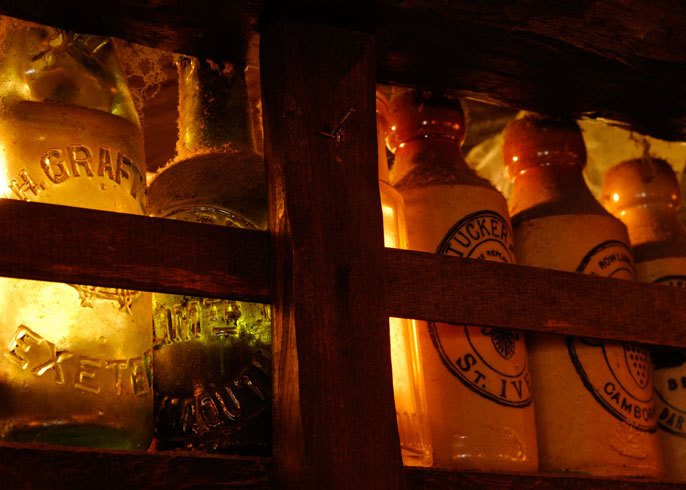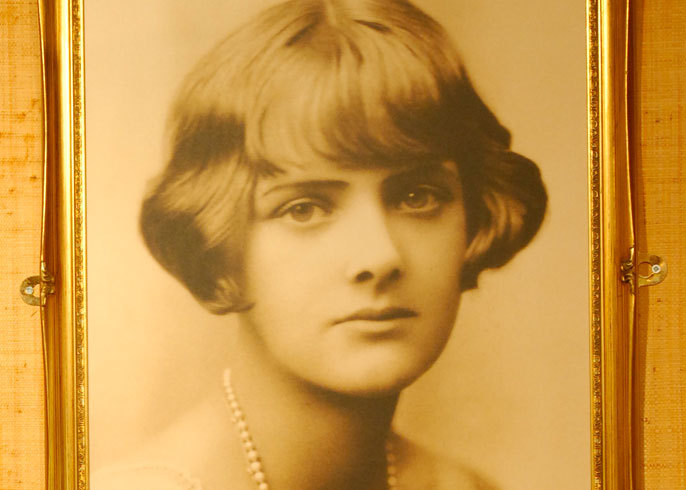History of Jamaica Inn
Located on a high and remote spot in the middle of Cornwall’s Bodmin Moor, Jamaica Inn is acclaimed as one of the most famous old inns in England.
It’s fame stems mainly from a work of historical fiction, Daphne du Maurier’s best-selling novel, ‘Jamaica Inn,’ which was first published in 1936. The story was set just over 100 years earlier and was based around an imagined criminal innkeeper’s murderous role in ship-wrecking and smuggling. The true story of Jamaica Inn is a different but equally fascinating tale of its contribution to Cornwall’s and the nation’s economic, social, and cultural history.
It was almost-certainly a purpose-built inn, constructed shortly after 1776, at the mid-point between the towns of Launceston and Bodmin, beside a newly constructed turnpike road, and on land that was nothing more than bleak, empty moorland, owned by members of the landed gentry. Probably named because of its remote location, Jamaica Inn was built on a newly marked-out 20-acre plot, leased from the moorland owners by a just-retired sea captain called John Broad.
The new inn was required to provide a change of horses and refreshments for travellers on horseback, or in public coaches or commercial waggons, making the arduous trip over the moor. It was almost certainly the construction of Jamaica Inn that persuaded the Royal Mail to send its dispatch riders, known as post boys, over the more-direct Bodmin Moor road on the route between Exeter and Falmouth, rather than using the previously established longer route north of Bodmin and avoiding the travails of the moor.
Two generations of the Broad family ran Jamaica Inn for about 40 years or more. The success they made of it ensured that the road over Bodmin Moor became firmly established as the new principal route linking Exeter and the important port of Falmouth. The port had long held the contract for shipping the international Royal Mail to and from countries along the Atlantic seaboards of the Americas and southern Europe. Royal Mail coaches, introduced on the Bodmin-Moor route in 1799 and carrying both domestic and international mail to and from Falmouth, called in both directions every day at Jamaica Inn to change horses and take refreshments for the coachman, guard, and passengers. At the height of the coaching era, Jamaica Inn was known to keep a stock of 30 horses and employ three ostlers.
During the 1830s and 40s, the owners of the moors around Jamaica Inn promoted the creation of more enclosures and the implementation of soil-improvement schemes to convert wild moorland into productive farmland. A new farming community emerged, centred around Jamaica Inn where new houses, a church and a school were erected to create the hamlet now known as Bolventor. However, this development coincided with the beginning of the railway age, which would see the Royal Mail shipping contract move from Falmouth to Southampton and greatly reduce the traffic crossing Bodmin Moor. The last Royal Mail coach called at Jamaica inn in 1851, after which the inn entered a long period of decline and neglect.
Salvation eventually came with the emergence of motor vehicles, which in the 1920s and 30s brought a resurgence in traffic crossing Bodmin Moor, and of visitors to Jamaica Inn. These visitors included the budding novelist, Daphne du Maurier. The success of her book based on the inn and of the subsequent film directed by Alfred Hitchcock could not be exploited immediately because of the interruption of the Second World War. However, from the late 1940s, successive owners progressively developed Jamaica inn into the increasingly successful hotel and tourist attraction it has become today.







